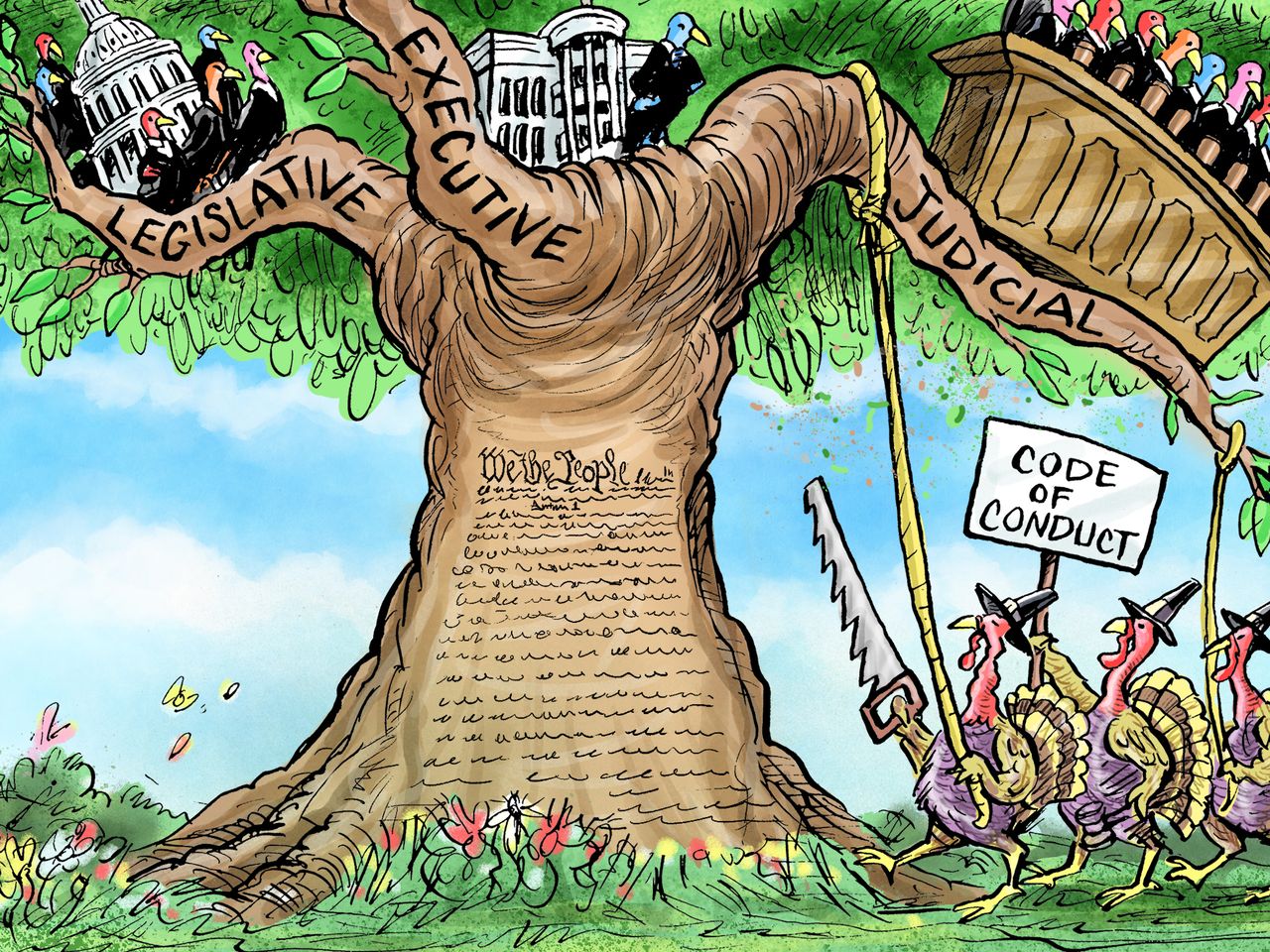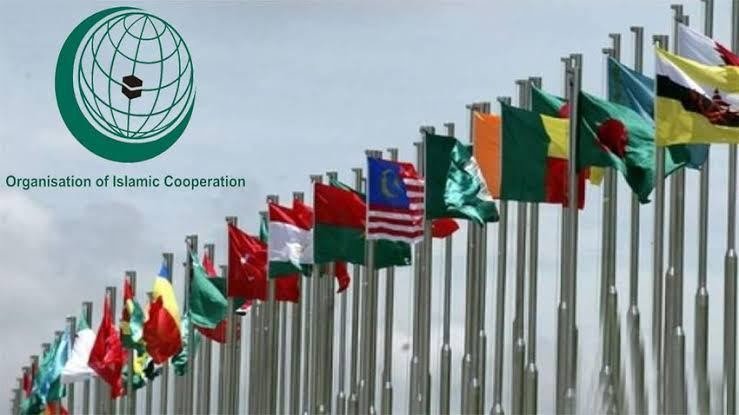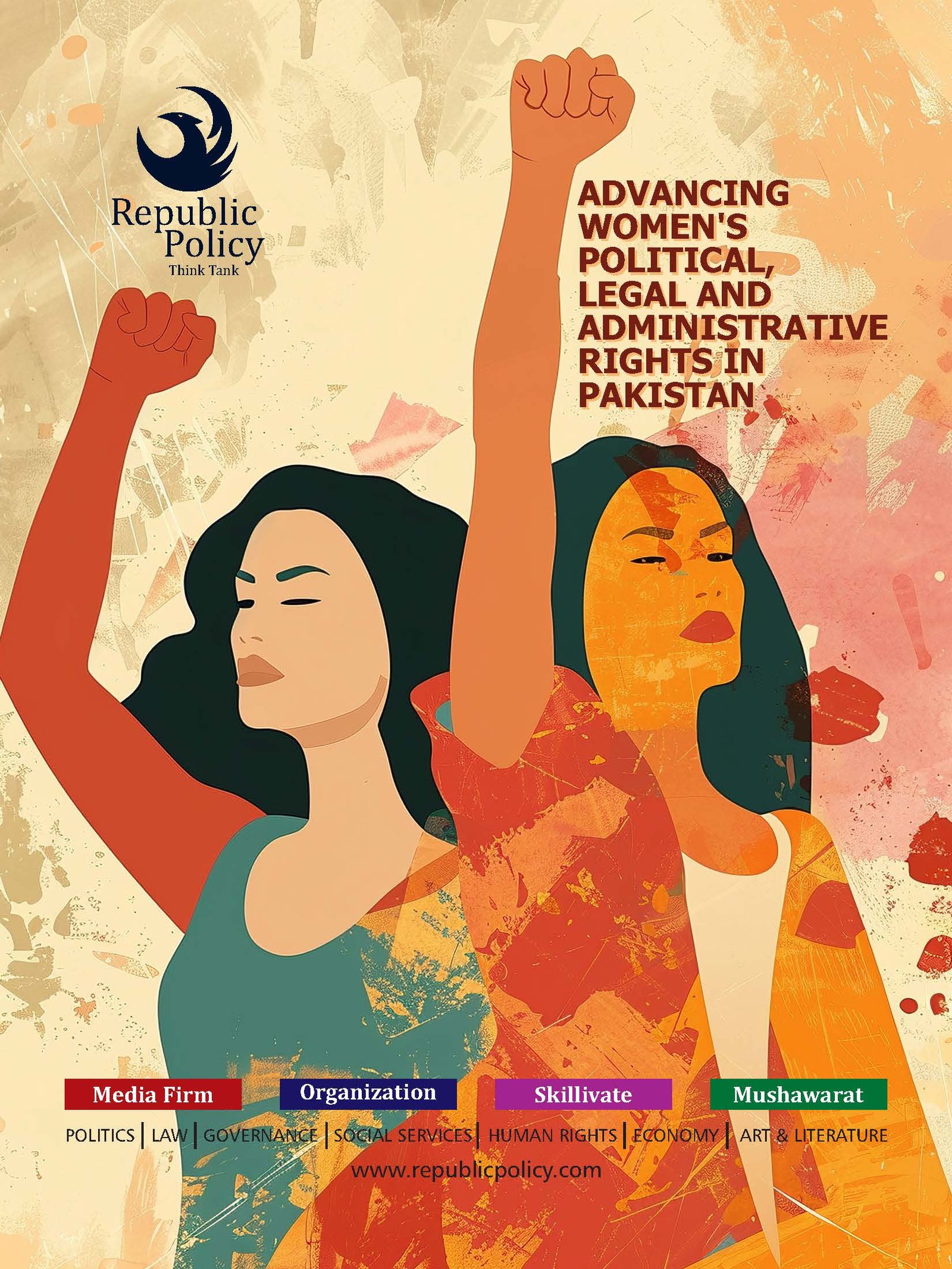Barrister Qazi Naveed Ahmed
The independence of the judiciary is a fundamental pillar of democracy, and it plays a crucial role in ensuring that justice is served fairly and equitably. An independent judiciary is free from political or other external influences, allowing it to make decisions based solely on the law and the evidence presented in a case. This is essential to guarantee that the courts are impartial and free from any external pressure, promoting transparency and public trust in the judiciary.
The judiciary’s independence is vital for promoting accountability. When the courts are independent, they can hold government officials and other powerful actors accountable for their actions. This is critical to ensuring that those in positions of power are not above the law, and they are held responsible for any wrongdoing. An independent judiciary can act as a check on the power of the government, promoting transparency and accountability in government institutions.
Additionally, the independence of the judiciary is essential for protecting the rights of all individuals. The courts are responsible for upholding the Constitution and ensuring that the rights of all individuals are protected. An independent judiciary can guarantee that these rights are safeguarded, and the courts can act as a shield for individuals against any abuse of power by the government or other powerful actors.
Furthermore, an independent judiciary can protect the judiciary’s institutional boundaries, ensuring that it is free from any external interference or coercion. This is essential to guarantee that the judiciary operates within its constitutional bounds and is not influenced by political or other external factors. The independence of the judiciary is also critical to ensure that the judiciary is not swayed by public opinion or the media, ensuring that the courts make decisions based solely on the law and the evidence presented in a case.
Therefore, the independence of the judiciary is a crucial aspect of any democratic society, and it is essential to ensuring that justice is served fairly and equitably. An independent judiciary can promote accountability, protect the rights of all individuals, and safeguard the judiciary’s institutional boundaries, ensuring that it operates within its constitutional limits. As such, it is critical that the judiciary is free from any external influence, allowing it to make decisions based solely on the law and the evidence presented in a case.
Pakistan’s judiciary is at a critical juncture, grappling with the task of defining its institutional boundaries and safeguarding its independence from external influences. This pivotal moment has been precipitated by the impending Supreme Court hearing on the Islamabad High Court judges’ ‘interference’ letter, slated for April 29. In a proactive move, the Lahore High Court has convened a full-court meeting to solicit suggestions on the best strategies to preserve the judiciary’s independence. The IHC has also called for similar proposals by April 25.
The independence of the judiciary is a cornerstone of democracy, and it is imperative that all stakeholders engage in the discourse on its protection. The LHC has referenced the April 3 hearing of the letter case and the SC’s directives to establish a mechanism that will hold accountable those who undermine the judiciary’s independence. It also aims to provide guidance to individual judges facing interference or intimidation from the executive. The proactive steps taken by the two courts are commendable, and it would be advantageous if the remaining three high courts, Sindh, Balochistan, and Peshawar, also actively contributed to the dialogue.
The judiciary’s discussions on how to shield its members from external pressures necessitate the full involvement of all stakeholders to ensure the durability of the solutions derived. The institutional boundaries of the judiciary must be unequivocally delineated, and its independence must be safeguarded at all costs. The judiciary stands as the final bastion of the rule of law, and its independence is paramount to ensure the impartial and fair dispensation of justice.
In a related development, the Islamabad High Court Bar Association filed a petition earlier this week formally joining the calls for a probe into the judges’ letter. The IHCBA, which describes itself as a “primary stakeholder” in the letter case, has demanded that the apex court affix liability for those who undermine the judiciary’s independence once the investigation is completed. Other bar associations have previously made their positions known, and it appears that all stakeholders want the matter to be resolved definitively.
Given the gravity of the allegations raised by six serving judges, it would be advantageous if Chief Justice Qazi Faez Isa convened a full-court bench to deliberate on the contents of the judges’ letter, as he had indicated in the previous hearing. A comprehensive discussion would lend credence to the matter and send a clear message to those who attempt to infringe upon the judiciary’s domain that any further encroachment will not be tolerated. The issue of the judiciary’s independence is of paramount importance, and it must be safeguarded at all costs to ensure that justice is dispensed impartially and fairly. The judiciary’s deliberations on the matter must be exhaustive, and all stakeholders must contribute to ensure that the solutions derived from these discussions are robust and enduring.
Please, subscribe to the YouTube channel of republicpolicy.com
















